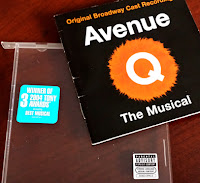Homily
by The Rev. Marcia McRae
St.
Francis Episcopal Church, Goldsboro, NC; Last Sunday after Pentecost,
Christ the King Sunday 20 Nov. 2016
Year
C RCL: Jeremiah 23:1-6; Canticle 4 or 16 [Luke 1:68-79]; Colossians
1:11-20; Luke 23:33-43
Jesus
says: Father, forgive them. They don’t know what they are doing.
I
am sure the Roman soldiers are sure they know exactly what they are
doing. Crucifixion is
their job.
Although
they haven’t invented crucifixion,
according
to Biblical
Archaeology's website,
the
Romans have taken it to a new level: from punishment to humiliate
slaves to capital punishment, which can leave a person dying in agony
for days.1
The
Roman soldiers who crucify Jesus know the techniques, how to drive
iron nails through human flesh & bones. [A
1968 archeological discovery of bones in a Jerusalem tomb verifies
the practice: the foot bones are still nailed together; arm bones
show scratches where nails went through.2]
As
they crucify Jesus, Roman soldiers know their job. They
do not know the greater impact of this
job:
Jesus
is dying for their sins & ours.
Like
the Roman soldiers, we 21st
century people think we know what we are doing. Like Adam & Eve
deciding to eat fruit from the tree of knowledge, we do things
believing we know what we do. Look at the mess in our world. Look at
the mess we make with our impatience not to waste time.
In
his book, House
of Stone,
author Anthony Shadid shares his
experiences in Lebanon, which we
know has more than its share of human suffering.
He tells of a relative whose studies aren't going well: the student
digs a hole in the garden, gathers all his school books & buries
them
“to
grow a tree of knowledge.”3
I
wonder if the shepherds in our reading from Jeremiah think they know
what they are doing. These “shepherds” are leaders of the people.
“ 'Shepherds' is often the title for kings in the ancient Near
East...”4
How
odd it must sound to these shepherd to hear Jeremiah's oracle of woe.
“What?! We're scattering God's sheep & neglecting God's people?
How can this be? We follow our rules.”
Our
rules can be so different from God's rule.
God's
command is love.
God's
love is not just when we get to heaven.
God's
love is now.
Love
God with all our heart, mind, & soul now.
Love
our neighbor now as we love ourselves.
Our
neighbor sits near us at church, lives down our street & across
our backyard fence. We look different when we see each other through
a fence, whether it's a real fence, a social or cultural divide, or
man-made border.
Today
we celebrate Christ the King Sunday. Jesus is our King, our Good
Shepherd. Jeremiah says God's Good Shepherd will tend
the sheep – all God's sheep.
Our
problems today are problems Jeremiah addresses & the letter to
the Colossians addresses: leaders lead us astray. Leaders Jeremiah
speaks to neglect people’s needs. New Christians in the Colossians'
heresy are mostly gentiles being led away from Jesus by false
teachers5,
who do not teach the love of Jesus' saving grace through his death on
the cross.
Our
reading from Colossians reminds us to celebrate “Jesus as the
unique mediator of creation &…redemption...[Our
reading]…affirms the reality of the created world,...stresses
[Jesus as]…head of the church..[&
as]
crucified savior...”6
A
crucified savior defies human logic.
The puppet, Kate, is in love with the “boy next door”, who seems
interested in her, yet the relationship goes nowhere. She sings:
“There's
a fine, fine line . . . between reality & pretend . . . between a fairy
tale & a lie . . . between
together & not . . .
There's
a fine, fine line between love & a waste of time.”
We
see a fine, fine line between love & a waste of time. God sees
clearly.
God
sees no fine line, no waste of time as Jesus dies on the cross,
crossing any line, any barrier we put between us & God.
Jesus
lays his love on the line for us on the hard wood of the cross.
Jesus
sees us – Jesus sees you – as worth the long hours of agony
nailed to the cross to restore us / you to God's love. Beloved
Brothers, Beloved Sisters, you are
worth all of God's time. Celebrate this Good News & share it,
using time to seek our lost brothers & sisters.
In
a special way today we will reach out in God’s love working
together as the Body of Christ, selecting leaders, discussing ideas &
next steps at our Annual Meeting.
God
sends Jesus to free us & bring us together under God's gracious
rule.
Human
love comes with barriers.
Jesus'
saving grace breaks through our barriers.
Celebrate
& share this Good News!
Bibliography
Grenz,
Stanley J. David Guretzki. Cherith Fee Nordling. Pocket Dictionary
of Theological Terms. Downers Grive, IL: InterVarsity Press.
1999.
Handy
Dictionary of the Bible. Gen. Ed: Merrill C. Tenney. Grand
Rapids: Zondervan Publishing House. 1973.
Harper’s
Bible Commentary. Gen. Ed: James L. Mays. San Francisco: Harper &
Row Publishers. 1988.
Harper’s
Bible Dictionary. Gen. Ed: Paul J. Achtemeier. San Francisco:
Harper & Row Publishers. 1985.
Holy
Bible with the Apocrypha. New Revised Standard Version. New York:
Oxford University Press. 1989.
Jewish
Study Bible: Jewish Publication Society Tanakh Translation. New
York: Oxford University Press. 2004.
Shadid,
Anthony. House of Stone: A Memoir of Home, Family, and a Lost
Middle East. New York: Mariner Books Houghton Mifflin Harcourt.
2012.
“There's
a Fine, Fine Line”. Avenue Q: The Musical. Music &
Lyrics: Robert Lopez. Jeff Marx.
“A
Tomb in Jerusalem Reveals the History of Crucifixion and Roman
Crucifixion Methods”. Biblical
Archaeology Society Staff.
Posted: 22 July 2011. Accessed: 17 Nov. 2016.
http://www.biblicalarchaeology.org/daily/biblical-topics/crucifixion/a-tomb-in-jerusalem-reveals-the-history-of-crucifixion-and-roman-crucifixion-methods/.
1
“A Tomb in Jerusalem Reveals the History of Crucifixion and Roman
Crucifixion Methods”. Accessed:17 Nov. 2016.
2
Ibid.
6
Ibid. P. 1227


No comments:
Post a Comment